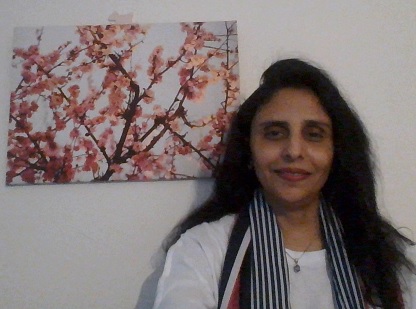| Sat. May 10, 2025 |
 |
|
||
|
||||
| ||||

As we witness the crumbling of states in the Middle East along with the brazen murders of journalists by Saudis and spurious arrests of Christians in Pakistan, India is serving as a ray of hope in the developing world. Mahatma Gandhi, a long-revered figure in India, epitomizes the core Indian values of truth, justice and non violence.
India gained its freedom in 1947 from repressive colonial rule and was partitioned into two countries – India and Pakistan. However, the two countries have charted entirely different paths. India has gained its fame through education, forays in IT, Yoga and spirituality and is a successful modern democratic Republic whereas Pakistan, an almost failed state, is notoriously known for terrorism, intolerance and its a penchant for violence.
India is a forward looking, upwardly mobile and fast modernizing stable and peaceful democratic republic. One reason for this is its tolerant culture along with its strong Hindu traditions of tolerance and moderation . Indian political leaders contribute greatly to the society. They provide sensitive and visionary leadership. For instance, its first founding Prime Minister, Jawaharlal Nehru played a key role in charting a peaceful and modern path for the country. While borrowing from the Western Democratic school of thought, he led a team of politicians and bureaucrats who founded a federal democratic republic. A strong constitution was put in place to meet the aspirations of all Indians and give autonomous powers to states. These measures were carried out to create harmony among the otherwise linguistically and culturally divergent states.
Since then, subsequent leaders have led the country successfully. Despite being a developing country with a plethora of challenges , India is a functional, successful, learning and self correcting democracy, rarely ever needing outside interventions. Indians serve as their own observers in their democratic elections. Stringent rules and guidelines have been developed to prevent any form of divisive or manipulative behavior so that free and fair elections can prevail. India has an abundance of National, regional and independent political parties. Despite this, elections are free and fair and the Indian society is well entrenched in democratic traditions. Indians love to engage in political debates and are voracious readers and writers. India has a strong and independent judiciary as well as an autonomous and independent election commission which monitors and supervises the democratic processes and elections. Unlike the Middle East and Latin America, where previous politicians are not jailed, ruling politicians as well as the rich and famous in India are put on trial and even jailed when they break the law. The media is absolutely free and freedom of expression is exercised abundantly by common people without any fear of state or any state bodies. Indians freely express dissent with the ruling parties and engage in social and political activism. India today is truly a land of liberty, freedom and harmony and Indians strive to achieve a society where such values are cherished through peaceful democratic terms.
As though these factors are not enough, India also provides enlightened regional leadership. It has long assisted neighboring countries like Afghanistan, Bangladesh, Sri Lanka, Nepal and Bhutan etc. It provides them with democratic assistance, helps them cope with civil wars and even gives them financial aid sometimes. It also engages in peaceful democratic dialogue with Pakistan to help them achieve peace, progress and non violence. It is a stabilizing force in the region and a role model for all developing countries in the world.
India has some world class institutions because Indians focus on education, industry and enterprise in order to enrich their lives. Indian media channels are free, fair and independent and provide abundant checks on the democracy.
Indian political leaders are statesmen of great stature, talented and provide reasonable and practical leadership. The Indian economy is well managed and well-regulated and keeps growing from strength to strength. India has also ingenously developed a strong and stable banking system, monetary system, well regulated and free stock markets which are rather insulated from world shocks. From time to time, India has undertaken economic reforms which have yielded great fruits. As a result, India is a fast developing country and progressing forward day by day. Through sustained efforts and reforms, Indians have weeded out corruption and brought accountability to state bodies. The Executive and Judiciary are independent and the media, free and liberal. The political leaders exercise great restraint and provide benevolent and liberal democratic leadership to the country. While huge challenges or poverty and poor infrastructure remain in some parts of the country, India is on the right path and should continue its peaceful progress.
India is a rising soft power and also plays a crucial role in world affairs. Throughout history, Indians have shunned violence and wars. India had no role to play in World War I or II. Throughout the cold war, India refused to align with the extremist Left or Right wing and started a Non Aligned Movement. India is a responsible nuclear power that acts with restraint. Through its centrist moderate approach, India has gained the respect of the world and will play an even greater role in World leadership. The world may only benefit from its vast experience in establishing a successful democracy outside the developed world amidst many economic and social challenges. As the world becomes increasingly multi-polar, with rising super powers like China in the Pacific, India has a great role to play in providing balanced, democratic and global leadership on the world stage.
Anuradha Kataria is a writer on Democracy and International Affairs. She has published a book, “Democracy on Trial, All Rise!” as well as several editorials on Democracy and International Affairs. She is an Indian residing in Gurgaon, India.
| Comments in Chronological order (0 total comments) | |
| Report Abuse |
| Contact Us | About Us | Donate | Terms & Conditions |
|
All Rights Reserved. Copyright 2002 - 2025